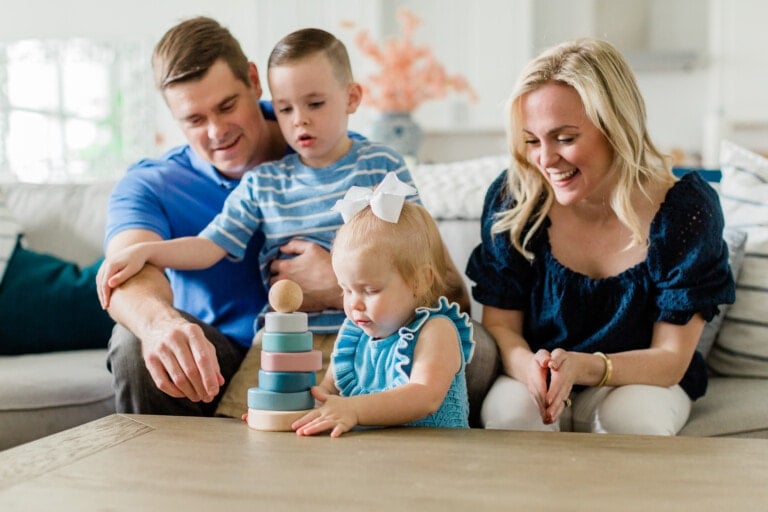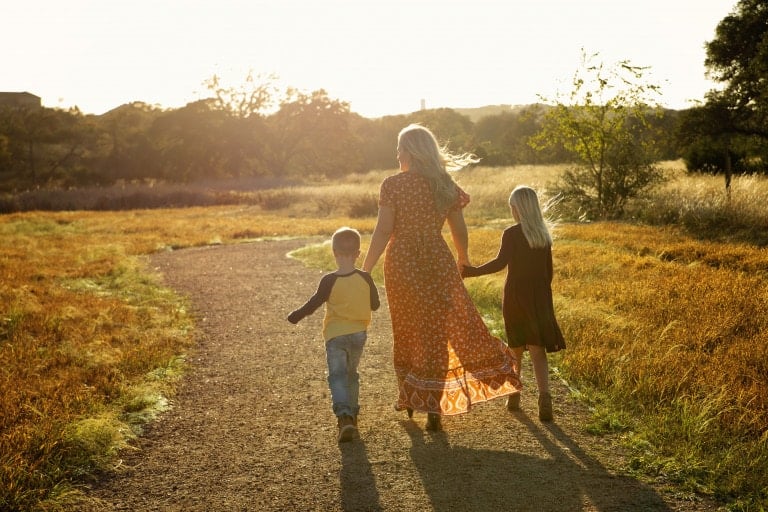Not all days are hard as a bereaved parent. Sometimes we might only think about the babies we lost once or twice a day. Some days we think about them a lot, like ALL THE TIME. Some days we remember the happiness they brought and the moments we felt their presence run so deep in our veins. Other days we think about what could have been, what they would have looked like today, who they would have been.
The thing that never changes is the fact that we are always grieving. We are always remembering them, and grief is not linear. Some things remind us of them. Unfortunately these things, these moments arise without warning.
Things Never to Say to a Bereaved Parent
Over the years, after so much loss, many things have genuinely made my grieving harder. And while this might not apply to every single bereaved parent out there, I think some of these might be something to think about eliminating from the conversation if you are speaking with a bereaved parent.
1. “At least you have a kid.”
Hard no. Please don’t say this to someone who is grieving. Just because they have a child doesn’t mean they aren’t hurting as much or more than someone who doesn’t have children. From my experience, there is a lot of guilt involved in losing a child when you have children, so please don’t remind them of this. Saying this is like telling them they’re not allowed to feel pain.
2. “At what stage did you lose the baby?”
This is hard. Some may disagree, but the fact is that a loss is a loss. So don’t ask how many weeks they were when they lost the baby. Don’t ask how old the infant was. Just say, “I’m sorry for your loss.”
3. “Are you going to try again?”
Please don’t ask about more kids or what the future looks like unless they bring it up. For many, having children is hard. We can’t just try again. So the idea of trying again when you are grieving or even when you aren’t is daunting. Again, this question tends to diminish the grief.
4. “My friend also . . .”
I get that you are trying to relate or make us feel less alone by telling us about someone you know who has gone through something similar. But now is not the time. Unless we ask, let us seek our own form of support. Comparing what we are going through to someone you know makes our situation feel minimized.
5. “Everything happens for a reason.”
This is one of the worst things to say to someone who is grieving. Sure, we get it. I even slightly believe this now. BUT I also didn’t need to hear that every time I went through a loss. And honestly, why must we lose a child? What is the purpose of that? What is the reason for their loss? I’m not even looking for an answer here. Just please don’t say that because to someone who has lost a child, a baby, there is absolutely no reason.
6. “Have faith . . . trust G0d.”
I get it, some people like to turn to faith to help them get through grief, but not everyone does. For some, for me, faith was so hard to comprehend when dealing with loss. It was something I questioned a lot. And it made me feel guilty. So bringing faith up to a bereaved parent is not the best form of support. We know it’s there. We know we can turn to it should we choose to.
7. “It will get better with time.”
Maybe that’s true for some or most, but this creates a timeline for how long someone is “allowed” to feel sad, for how long the grieving time “should” be. The thing is, as mentioned above, grief is not linear. There might be a good day mixed in with many bad ones. There might be a lot of good ones followed by a bad one. Triggers, months, dates, and memories arise out of the blue. So many times we have no control over them. So, instead, say, “Take all the time you need. I’m here for you always.”
8. “You should . . .”
Please refrain from starting a sentence with “you should.” Unless you are walking in this person’s shoes, you have no idea what they are feeling, when, or why. So no one, and I mean no one, has a right to tell someone how they should handle a situation that is so personal.
9. “Be thankful that . . .”
Just because we are sad doesn’t mean we aren’t thankful for what we have and who we have. I deal with this a lot going through secondary infertility. Truthfully, I already felt so guilty (and still do). So please know that both feelings can and should co-exist. We are allowed to be sad for what we have lost even if we have other things. One does not cancel out the other.
10. “Have you tried . . .”
Advice, unsolicited advice, in other words. This is tough. Here’s the thing, unless we are directly asking for it, advice isn’t what a bereaved parent needs. We have probably already tried most things, and honestly, we can ask for suggestions or advice when healing when we are ready. So please know that giving suggestions or advice will most likely not be well received, even though we know you mean well.
Things to Say or Do Instead
If you do approach a bereaved parent, here are a few things that helped me:
- Offer them a meal, a snack, a coffee. In fact, don’t offer; just send it over. Say you left it out front in case they don’t feel like coming to the door. If they feel like talking, they will. Food and special gifts for a grieving mother always help in some way or another.
- Remind them that you are there to listen. “I am here for you, anytime, always willing to listen.”
- Say, “I am so sorry for your loss. I can’t imagine what you are going through.”
- Say, “I am thinking of you. I am here when you are ready to talk if you need to.”
- Check-in often. Grief is not linear, and the feeling of sadness or emptiness doesn’t go away in a day, a week, or even a month.
Lastly, ask questions. Ask them how they feel. Remind them that you care to know, that you aren’t just saying sorry to do a good deed, but that you genuinely want to know how they are, what happened, etc. But when they are ready.




























